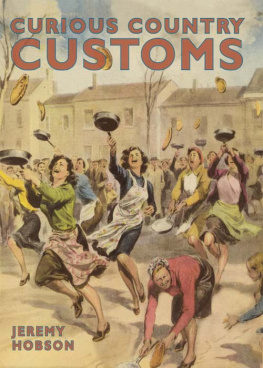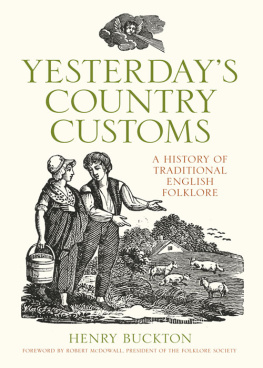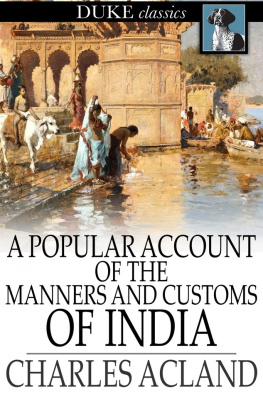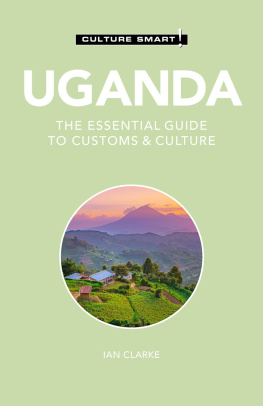INTRODUCTION
There must, one would suppose, be a logical reason why 13 men might sit in a pub on a June evening, all wearing hats adorned with duck feathers; or why virtually the entire population of two villages attempt to chase a ball across a 2-mile (3km) stretch of countryside; or several outwardly normal-looking sensible people career hysterically downhill after a rolling round of cheese?
What previous events inspire burly athletes to pick up a bag of coal, or a bale of wool, in order to compete against one another? And why, in the early hours of Easter Sunday, May Day or at the dawn of the summer Solstice do groups of solemn worshippers climb Welsh mountains; wash their faces in the early morning dew; and watch the arrival of the sun from the circle at Stonehenge?
Many happenings are specific to a certain area of Britain. The West Country, Scotland and Northern England, for example, have more than their fair share of curious customs that cannot be witnessed anywhere else in the country, whereas it seems that Wales and Ireland have more generalized traditions, superstitions and folklore, most of which are based around singing and dancing surely the two most ancient methods of warding off evil spirits and encouraging the favours of gods associated with hunting and crop fertility?
Although many customs undoubtedly have pagan origins, in some cases they have been adopted by the Church in order to suit their own ends. Others were devised by countryside workers and everyday folk as a means of creating a time of reunion with family and friends, safe in the knowledge that there was no need to pick up a tool or harness a plough, and giving a legitimate excuse for the village to turn out, eat, drink and be merry all the while knowing that tomorrow there was more work to be done and their small world would move into its next season. Yet other customs are not old at all but will no doubt become established traditions in future years. Old or new, all have one thing in common, that of a sense of belonging and a time for innocent fun long may they continue and flourish.
Curious Country Customs should appeal to people passionate about Britain, readers interested in folklore and rural history, and to those who delight in finding a logical reason for everything, no matter how obscure! It also provides a database of dates, times, locations and opportunities for those who wish to watch or even participate as all the customs detailed are still in existence today.
The book focuses on individual events held at a specific place, but it is worth mentioning that a few, such as Up-Helly-Aa, a fire-fest held at Lerwick, are also celebrated at around the same time in other areas of Scotland. Some customs and traditions described also move months from time to time, due either to links with the phases of the moon or, rather more mundanely, because a particular feast day falls mid-week and the organizers have decided that it would be better held on a weekend when a greater attendance can be expected. The biggest moveable feast is Easter and for that reason it has its own chapter, which can be found between March and April.
Before considering attending any event, it is advisable to contact one of the nearest tourist offices in the region or to look on one of the many website links.
Jeremy Hobson
JANUARY
The New Year
Some 700 years before Julius Caesar came to power in 46bc, the Roman year comprised ten months and began on 25 March (Lady Day), a date that crops up regularly in country customs.
The arrival of Caesar saw the creation of the Julian calendar and by the time Britain began using it there were 12 months of 30 days and a 13th of five. If it were to have continued, we would by now be about eight years behind ourselves and probably celebrating New Years Day on 13 September as they do in Ethiopia, where the Julian calendar is still used.
In the late 1500s the Gregorian calendar, devised by Pope Gregory XIII, was introduced. This was implemented at different times throughout Britain, but for Wales and the majority of England it appears to have been in common usage by 1752. Scotlands changeover was earlier than this and in 1599 the Privy Council resolved that the following year should officially begin on 1 January.
Up in Arms
The new calendar was not popular and it caused a public outcry throughout Britain with people demanding that they should be given back their lost days. This protest is still commemorated by the 200 inhabitants of Gwaun Valley near Fishguard, Dyfed, Wales, who belatedly welcome in the New Year on 13 January in a ceremony known as Hen Galan.
New Years Eve
In Scotland, the eve of the New Year has traditionally been of supreme importance and still takes precedence over Christmas. Nowadays it is a time of fun and light-hearted tradition, but underneath the rejoicing is an element of superstition and ritual.
Up until the beginning of the 20th century it was common practice for Scottish people to go around houses and shops carrying dried cow-hides and chanting rhymes, which it was hoped would keep at bay fairies, evil spirits and hostile forces of every kind. At each home the hide was singed in the fire and members of the household were required to smell it as a charm against all things evil and harmful.
First Footing
Better known is the custom of First Footing, when, at midnight, armed with a bottle of whisky and gifts, people visit their neighbours in the hope of bringing them luck. In England it is still the custom for a dark-haired man to let in the New Year: the man leaves the house by the back door just before midnight on New Years Eve and on the stroke of midnight knocks on the front door. The householder opens the door and traditionally receives from him the following gifts: salt for seasoning, silver for wealth, coal for warmth, a match for kindling and bread for sustenance.
The Welsh Way
In Wales, if the first visitor is a woman and a man opens the door bad luck will follow, as it will if a red-haired man is the first male to cross the threshold. Another New Year custom that used to be carried out throughout Wales was the giving of the Calennig a token piece of fruit, usually an apple or an orange. From dawn until noon on 1 January, groups of young boys would visit all the homesteads in their locality carrying with them branches of evergreen and water drawn from the nearest well: they would then use the twigs to splash people with the water and in return be given the Calennig the custom has all but died out and, were the local lads to try it today, they would no doubt receive a court order and an ASBO rather than any reward!
In Wales, if you pay off your debts on New Years Day it is considered good luck. On the other hand, to do the same elsewhere in Britain is deemed bad luck.
Manx Ways
In the Isle of Man, New Years Day used to be known as Laa Nolick beg, or little Christmas Day, and the first person or creature you met after leaving home decided whether or not you would have good fortune through the coming year; to meet either a splay-footed person or a cat, for example, was considered unfortunate. Great care also had to be taken when sweeping up around the Manx house on New Years morning: the dust had to be swept so that it travelled from the door towards the hearth. If this wasnt done, the good fortune of the family would be swept from the home for that particular year.






